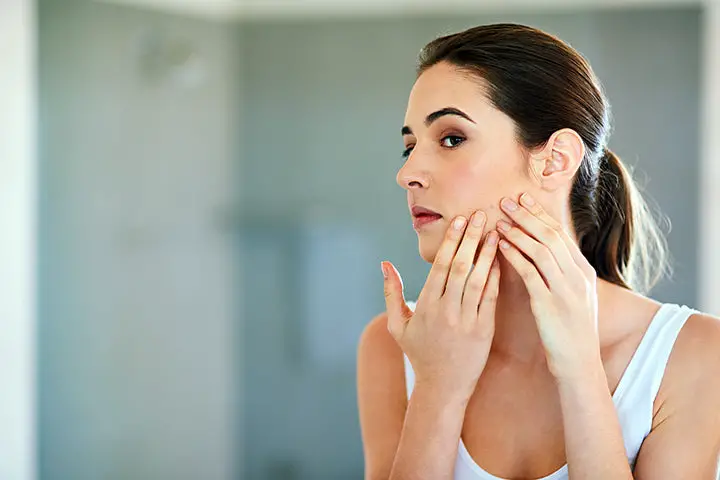Folliculitis vs Acne Differences: What Beauticians Should Know?
As a beautician, having insights into common skin issues like folliculitis vs acne differences is crucial. These conditions, although appearing similar, have distinct characteristics that require different approaches for effective treatment. Recognizing these differences can empower you to provide the best care and advice to your clients.

What is Folliculitis?
Folliculitis is a skin condition caused by inflammation of the hair follicles. It can be triggered by factors such as bacteria, fungal infections, or even irritation due to shaving and other hair removal processes. Folliculitis often presents as small red bumps or white-headed pimples around hair follicles. It can be itchy, painful, and in some cases, lead to more severe skin conditions.
What is Acne?
Acne, on the other hand, is a skin condition primarily caused by hormonal imbalances, excess oil (sebum) production, and clogged pores. It often manifests as blackheads, whiteheads, or cyst-like lesions. Unlike folliculitis, acne mainly affects the face, but it can also appear on the back, shoulders, and chest. Acne can significantly impact an individual's self-esteem and confidence, which is why understanding its root causes is essential for beauticians.
Key Differences: Folliculitis vs Acne
While both conditions may appear similar, some subtle yet important differences can help you distinguish between them:
- Cause: Folliculitis is typically due to infection or irritation, whereas acne is largely hormonal.
- Location: Acne often appears on the face, while folliculitis can affect areas covered by hair.
- Appearance: Acne often features blackheads and whiteheads, while folliculitis presents as inflamed, follicle-centered papules and pustules.
Understanding these distinctions is vital for tailoring appropriate treatment approaches for your clients. For more details on how to identify folliculitis, visit our detailed guide.
Importance of Proper Diagnosis
Proper identification of whether a client is suffering from acne or folliculitis is essential, as misdiagnosis can lead to ineffective treatment and prolonged skin issues. Consulting with a dermatologist can provide clarity for persistent cases. Moreover, ensuring that your skincare regimen aligns with your client's specific needs can prevent further skin aggravation.
Treatment Approaches for Beauticians
There are different ways to approach treatments for folliculitis and acne:
- For Folliculitis: Antibacterial or antifungal treatments can be effective. It's also important to advise clients on proper personal hygiene and potentially recommend antifungal soaps.
- For Acne: Topical treatments such as benzoyl peroxide, salicylic acid, or retinoids can help in managing symptoms. Lifestyle modifications, including diet changes and stress management, are also beneficial.
Additionally, embracing a skincare routine specific to the client's skin type and condition will significantly enhance results.
Maintaining Healthy Skin Practices
Educating clients on the importance of maintaining healthy skin practices is an essential part of a beautician's job. This includes regular cleansing, hydrating, and protecting the skin from excessive sun exposure. For those dealing with folliculitis, avoiding tight clothing and irritants is important. Meanwhile, for acne-prone clients, encouraging a balanced diet and hydration can aid in managing breakouts.
For further reading on managing skin conditions, you might find useful insights in articles about folliculitis causes and treatments.
Conclusion
By understanding the folliculitis vs acne differences, beauticians can provide more personalized and effective skincare advice. In doing so, not only do you contribute to the overall well-being of your clients, but you also strengthen your trust and reputation as a knowledgeable beauty expert.

Frequently Asked Questions (FAQ)
How can I differentiate between acne and folliculitis?
Acne is typically associated with hormonal changes and involves blackheads and whiteheads, primarily on the face. Folliculitis typically results from an infection or irritation around hair follicles and can happen anywhere hair grows.
Is it safe to pop folliculitis or acne?
Picking or popping either condition is not recommended as it can lead to further irritation, infection, and even scarring. Consult a professional for treatment advice.
Can certain lifestyles contribute to these conditions?
Yes, lifestyle factors such as diet, stress, and hygiene can influence the severity of both acne and folliculitis. Encouraging healthier habits can aid in managing these conditions effectively.

